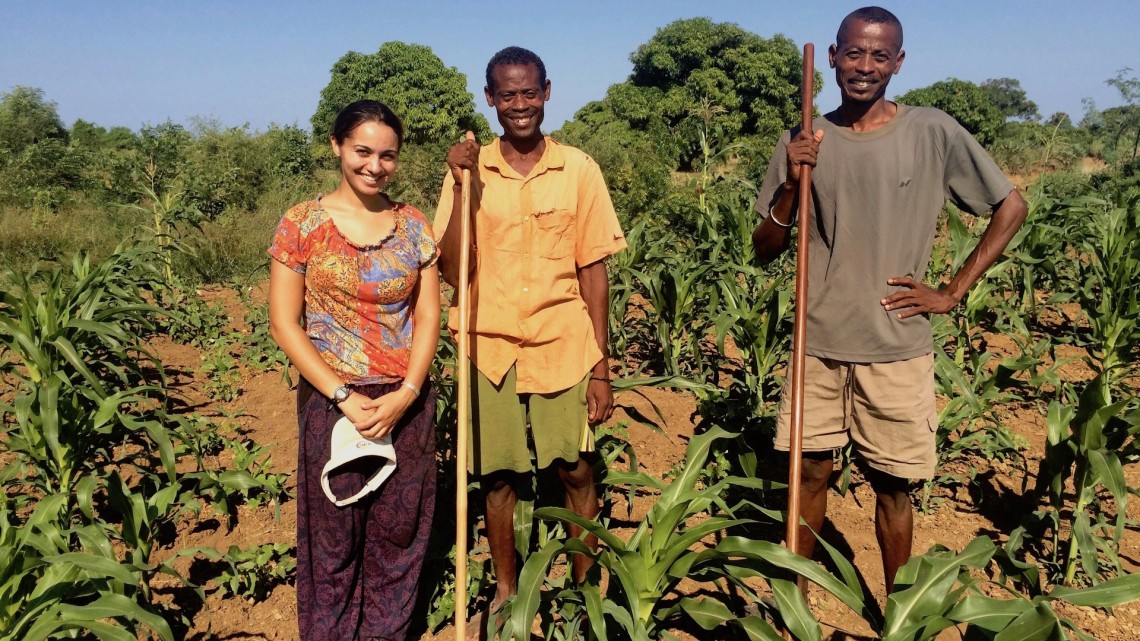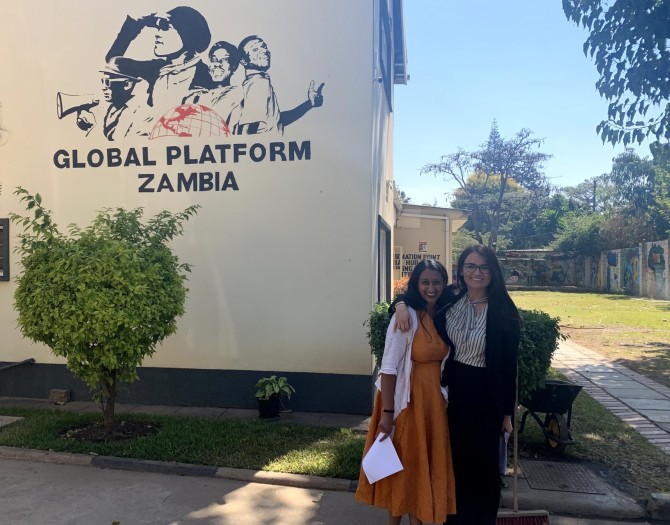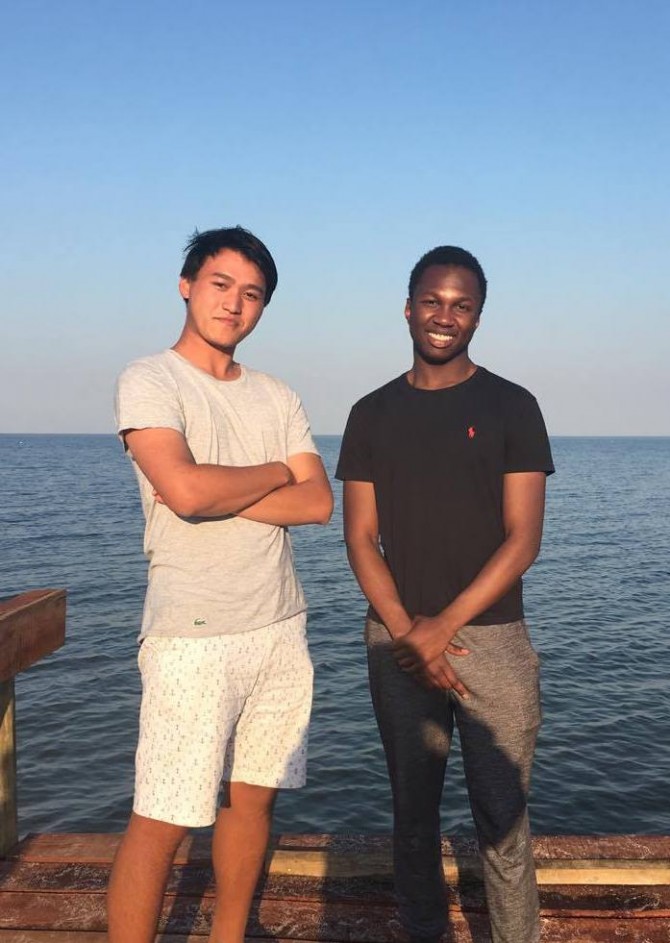
Shanti Kumar ’17 with farmers she interviewed for her thesis while studying abroad in Toliara, Madagascar.
News directly from Cornell's colleges and centers
International relations minor sets graduates on global paths
By Priya Pradhan
Blair Lapres ’09 is an economist at the World Bank, working on private sector development with governments across the globe, from west Africa to parts of central Asia.
Tony Zhou ’19 worked in Zambia through the Fulbright U.S. Student Program. Now he’s based in Khartoum, Sudan, with the Darfur Women Action Group, a women-led NGO for survivors of the Darfur genocide.
Ashni Verma ’21, an industrial and labor relations major, is heading to a job as an analyst at the U.S. Government Accountability Office after graduation. These are just three of more than 400 undergraduates who have earned an international relations minor at Cornell.
Launched in 1996 and supervised by the Mario Einaudi Center for International Studies, the minor immerses students in world politics, economics, history, languages and cultures. International relations is one of eight undergraduate and graduate minors based in the Einaudi Center.
Enrolled students are encouraged to explore global experiences during their time at Cornell – and like Lapres, Zhou and Verma, many graduates go on to pursue internationally minded careers, both abroad and in the United States.
“As one of the first interdisciplinary minors established at Cornell, the international relations minor has a long tradition of preparing students for careers in international affairs, ranging from the Foreign Service to international law and business to NGOs,” said Christopher Way, the minor’s faculty director and associate professor of government in the College of Arts and Sciences.
Saara Shanti Kumar ’17 was an international agriculture and rural development major and international relations minor. Now she is a Schwarzman Scholar wrapping up her Tsinghua University master’s program in global development remotely from Thailand, since China’s borders remain tightly sealed.
At Cornell, Kumar chose learning experiences that sent her around the world, studying abroad in Madagascar and working as an intern with the United Nations Food and Agriculture Organization in Gabon and a member of a Student Multidisciplinary Applied Research Team (SMART) in Colombia.
“I wanted to do anything and everything that was related to international relations and studies at Cornell, so I naturally gravitated toward the minor,” said Kumar. These experiences helped her gain the confidence of future employers, leading to positions in Trinidad and Tobago, Burkina Faso, India and Guatemala.
The international relations minor enables students to weave an international perspective into any field of study, which is precisely what Lapres did. In 2008, Lapres cofounded the ILR Global Affairs Club, bringing together his ILR major and passion for international relations.
When Lapres joined the World Bank’s South Asia regional department for agriculture after graduation, he immediately applied perspectives he learned in IARD 4020: Agriculture in Developing Nations, which gives students practical field experience during an immersive trip to India or Myanmar.
Cornell connections sometimes continue in distant places. During a recent two-year posting in Croatia, Lapres heard a familiar voice outside his office: it was his former IRM professor, David Lee, in the country to work on a project with the World Bank’s agriculture team. After crossing paths in 2018, the pair collaborated on a short-term project analyzing opportunities for agricultural development in Croatia.
Einaudi’s minor has earned a name among entering students, as well. Both Verma and Zhou applied to Cornell with their sights already set on the program. Zhou says the international relations minor was a stepping-stone to his work in international contexts.
“I think, living in the 21st century, no matter what discipline or field you choose, you have to engage with the rest of the world. We need to be engaged as a part of the global community and the best way to do so is to learn,” he said.
Priya Pradhan ’22 is a writing intern for Global Cornell.
Media Contact
Get Cornell news delivered right to your inbox.
Subscribe




